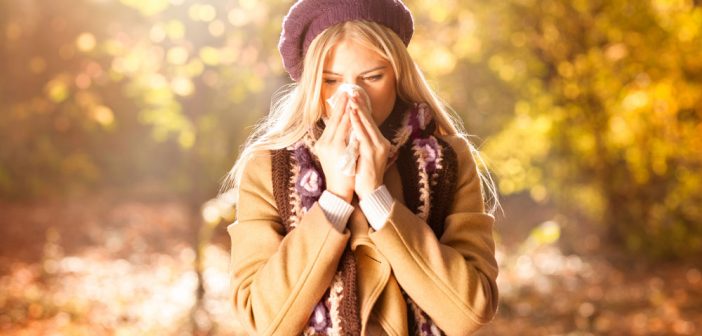Most people assume that spring is the worst time for allergies. While it can certainly be a time of year when allergy sufferers feel some effects, allergies can be bad in the fall as well. You might think that most plants aren’t reproducing that this point in time, but there is still pollen and other allergens in the air.
Fall is a time of transition. While the weather is getting cooler and the days are getting shorter, there are still some warms days, which contributes to pollen development and other allergens. Some of the biggest culprits for allergies this time of year include ragweed and pet dander.
Things to Know About Fall Allergies
When it comes to fall allergies, the more information you have, the better prepared you can be. Below are some things to know about how to keep your allergy issues under control.
Leaves Can be Problematic
One of the best things about this time of year is the fact that the leaves change color. This can be a beautiful display. If there’s a downside, it’s having to rake once your yard is covered in them. If you suffer from allergies, it can make this process even worse.
While raking, it’s possible to stir up pollen and other allergens, including mold. Since fall is often accompanied by a lot of rain, this increases humidity, which increases mold spores. All of these can wreak havoc on a person’s allergies and make them feel terrible.
Pet Dander
There are certain times during the year when pets will shed their old coat and grow a new one. More often than not, this is spring and fall. During the fall, they are getting rid of their thin summer hairs that keep them cool and replacing them with thicker fur for the winter. If you are allergic to pet dander, then this time of year can be incredibly challenging to deal with.
Open Windows
Fall weather is usually very pleasant. It means being able to turn off the air conditioner and open up the house. This comes with its own problems, as dust, ragweed, and mold spores then have access to your home. They can settle into the furniture, in your carpet, and on your clothes. When this happens, you are exposed to these allergens and they can make your nose run and your eyes itch.
School Allergies
If you are a teacher or student, then going back to school can also have an impact on your allergies. There are a lot of things in this space that can cause problems, from dust to classroom pets to chalk dust to regular dust.
Most schools are closed over the summer, which means that they aren’t being cleaned properly. While the dust may not be a huge problem, if you suffer from allergies, then any amount will be an issue. If your classroom has a pet, then you can be allergic to their dander or even the bedding that is in their cage.
How Can You Tell If It’s a Cold or Allergies?
Colds and the flu are incredibly common during the fall, and they often have the same symptoms as allergies. Thus, it may be difficult to tell if you have one of these viruses or if you just have allergies. One way to tell is how long the symptoms last and if they are accompanied by a fever.
More often than not, a cold and the flu will last for 5 to 7 days. The flu will more than likely be accompanied by a fever, but a cold may not. If your symptoms last for more than 7 days and seem to occur at the same time every year, then you can assume that you have allergies and not a virus.
How Do You Treat Fall Allergies?
One of the best ways to deal with fall allergies is to be proactive. This could mean taking over-the-counter allergy medications or talking to your doctor to get a prescription. In either case, this should reduce the symptoms that come with allergies and allow you to enjoy this colorful time of year.
Some other ways to reduce the occurrence of fall allergies includes keeping up with your cleaning. Since pollens and mold spores can get caught in your carpet or on your furniture, consider vacuuming them at least once a week. You can also take your dog to the groomer or brush them outside to help remove the dander they are shedding.
If you wear layers of clothing, make sure to take off the top layer as soon as you come inside after gardening or being outside. You’ll want to throw them in the wash as soon as possible. Avoid using harsh cleaners, as they can also trigger allergy symptoms. Use products that are natural and allergen-free to reduce your symptoms.
Don’t Let Fall Allergies Ruin Your Day
Whether you believe it or not, fall allergies are a thing and can make your life miserable. If you find that you have itchy or watery eyes, a cough, are constantly sneezing, have sinus pressure, and feel all-around terrible this time of year, it could be an indicator that you have fall allergies. Make an appointment with your doctor to find out for sure, then find ways to cope so that fall allergies don’t ruin your day.









